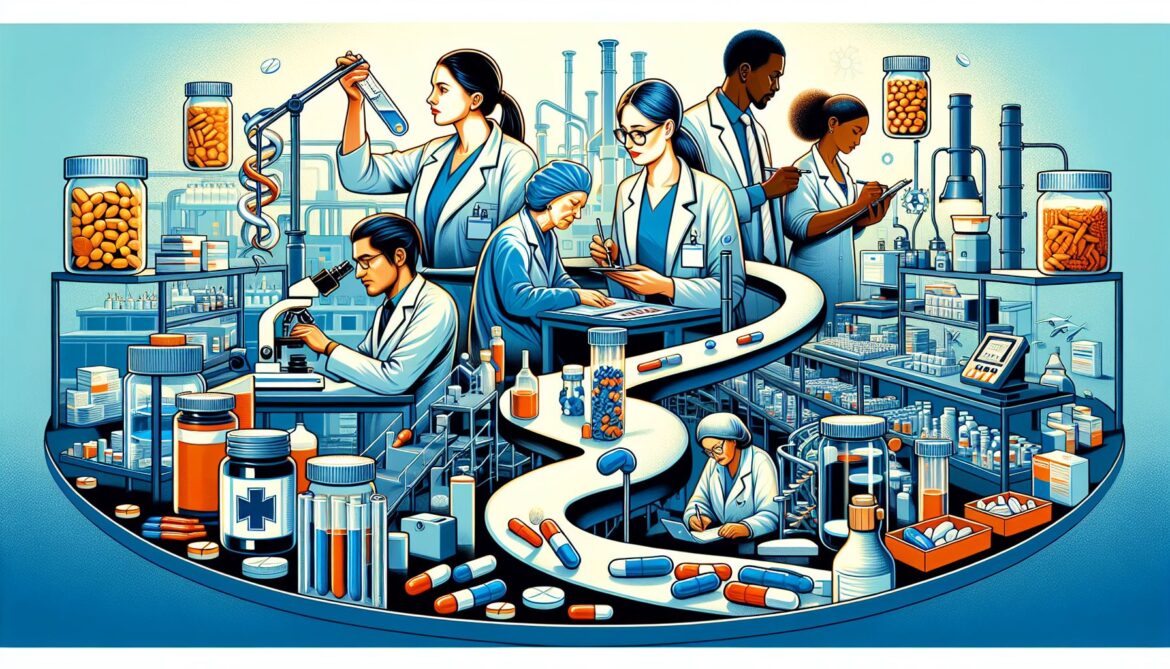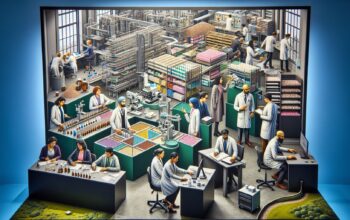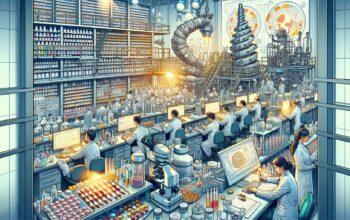
The pharmaceutical industry plays a vital role in our lives, as it provides us with the necessary medications to treat a wide array of ailments. From common colds to life-threatening diseases, medicines have become an intrinsic part of our daily routines. Let’s delve deeper into the fascinating world of medicines and the pharmaceutical industry that produces them.
The Pharmaceutical Industry: An Overview
The pharmaceutical industry involves the research, development, production, and marketing of medications. It encompasses various organizations, including pharmaceutical companies, biotechnology firms, and research institutions. These entities work relentlessly to create safe and effective drugs that can enhance the quality of life for millions of individuals.
Research and Development
The process of creating medicines begins with rigorous research and development (R&D). Scientists extensively study diseases and identify potential targets within the body that could be affected by medications. This crucial phase requires significant investment in terms of both time and finances, as it involves numerous experiments and clinical trials to ensure the safety and efficacy of drugs.
Regulatory Approval
Before a medicine can reach the market, it must be approved by regulatory authorities. These organizations, such as the Food and Drug Administration (FDA) in the United States, thoroughly review the data obtained from clinical trials to assess the drug’s safety and effectiveness. This meticulous evaluation ensures that only high-quality medicines make their way to the patients who need them.
Manufacturing and Distribution
Once a medicine obtains regulatory approval, pharmaceutical companies commence large-scale manufacturing. This process involves producing medications in vast quantities while adhering to specific guidelines and maintaining quality control. After manufacturing, the drugs are then distributed to pharmacies, hospitals, and other healthcare facilities, where they can be accessed by patients.
Challenges and Ethical Considerations
The pharmaceutical industry faces several challenges. Developing a new medicine can take years and incur enormous costs, which may lead to high prices for the end-user. Additionally, generic versions of drugs may emerge once the patent expires, reducing profitability for the originator. Companies must strike a balance between providing affordable medicines and ensuring a return on their significant investments.
Ethical considerations also arise in the pharmaceutical world. Companies must respect patient privacy, promote transparency in their research, and prioritize patient well-being in clinical trials. Striving for ethical conduct strengthens the industry’s reputation and increases public trust in the medicines they produce.
Advancements and Future Outlook
The pharmaceutical industry continues to innovate and make significant advancements. Recent years have witnessed breakthroughs in areas such as precision medicine, immunotherapy, and gene therapy. These advancements hold the promise of revolutionizing healthcare and providing new treatments for diseases that were once considered incurable.
Looking ahead, the future of medicines appears bright. The ongoing research and collaboration between pharmaceutical companies, research institutions, and regulatory authorities aim to facilitate faster drug development processes and expand access to innovative treatments. Moreover, the integration of technology, such as artificial intelligence and big data analytics, is expected to further enhance the development and manufacturing of medicines.
In Conclusion
The pharmaceutical industry is a complex and crucial part of our society, inventing, producing, and distributing medicines that save lives and improve well-being. From the arduous research and development phase to the careful regulatory approval process, pharmaceutical companies contribute to advancements in healthcare that benefit individuals worldwide. As we move forward, we can anticipate even more significant breakthroughs, ensuring a healthier and brighter future for all.


